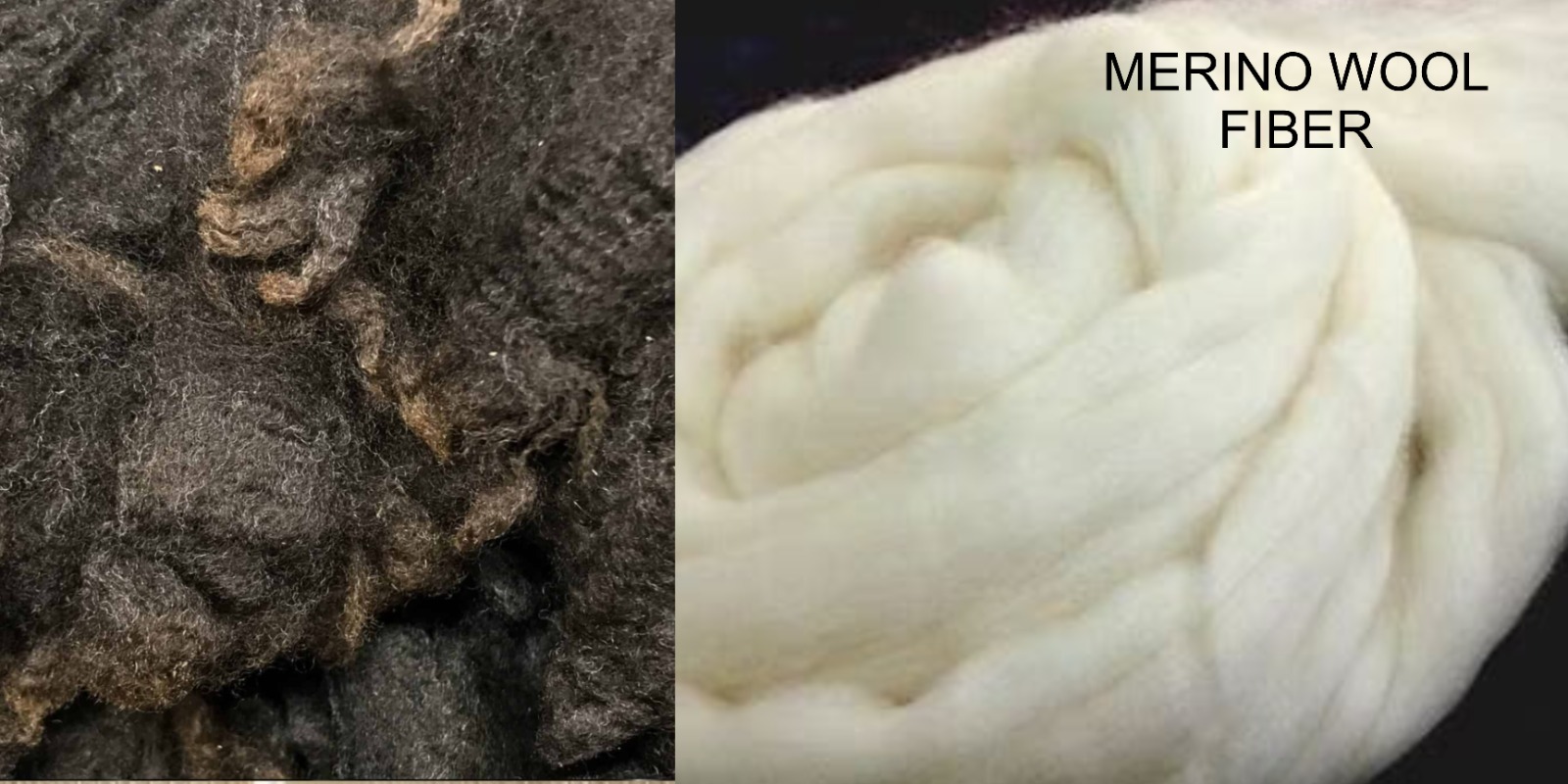
Merino Wool Fiber

Merino Wool Is A Type Of Wool That Comes From Merino Sheep, A Breed Known For Its Fine, Soft, And High-Quality Wool Fibers. In A Landscape Of Fibers, Merino Wool Reigns Supreme, Offering An Unparalleled Blend Of Luxury, Functionality, And Eco-Friendliness.
Anuprerna ensures that her customers experience the luxurious comfort and eco-friendly benefits of this remarkable fiber. With a commitment to quality and sustainability, Anuprerna continues to promote the use of Merino Wool as a superior choice in the textile industry.
The Origins of Merino Wool
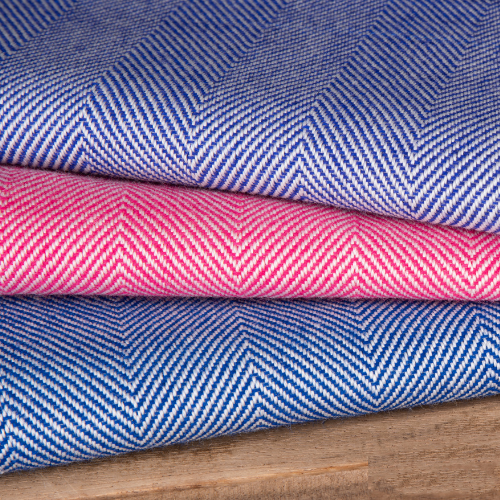
Dating back to centuries ago, merino sheep were first bred in Spain, with their exquisite wool fetching the attention of aristocracy and fashion enthusiasts. Over time, the appreciation for merino wool's exquisite texture, breathability, and insulating properties spread across the globe, establishing it as a staple in various industries.
Extraction of Merino Wool
The production of Merino wool involves careful breeding and management of Merino sheep to ensure high-quality fleece with desirable properties. It's important to note that the process of producing Merino wool involves ethical considerations, as the welfare of the sheep during shearing and farming practices is crucial for maintaining the sustainability and quality of the wool.
Merino wool is extracted from the Merino sheep through a process called shearing, where the sheep's fleece is carefully removed using electric clippers. The wool is then sorted and cleaned to remove impurities like dirt, grease, and sweat. After cleaning, the wool is carded to separate and align the fibers.
The next step is spinning, where the carded fibers are twisted together to form yarn. This yarn can then be woven, knitted, or used for various textile applications. Merino wool is known for its fine and soft texture, making it a popular choice for clothing and textiles.
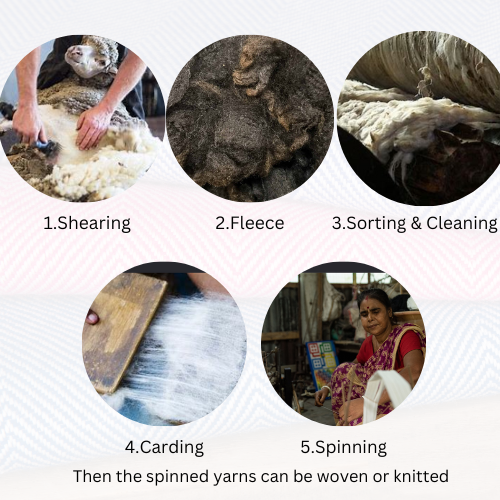
Qualities of Merino Wool
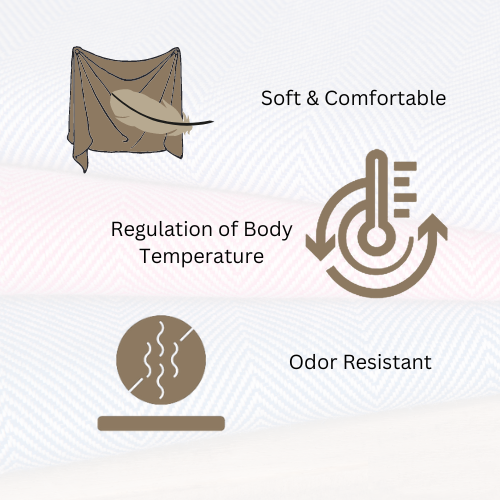
Unparalleled Softness and Comfort
Merino wool stands in a league of its own when it comes to softness and comfort. Its fibers, much finer than those of traditional wool, boast an incredibly delicate touch against the skin. This attribute has propelled merino wool into the world of luxury fashion, as it is favored by designers and consumers alike for crafting premium garments that provide both opulence and coziness.
Regulation of Body Temperature
One of the most remarkable qualities of merino wool is its natural ability to regulate body temperature. The fiber's inherent breathability allows it to wick moisture away from the body, ensuring that you stay warm in colder climates and cool in the heat. This unique thermoregulation capability of merino wool thermals is an ideal choice for a wide spectrum of activities, spanning from high-intensity sports to leisurely strolls.
Odor Resistance and Hygiene
Merino wool possesses a remarkable odor resistance that sets it apart from its synthetic counterparts. This is due to the fiber's natural ability to prevent the growth of odor-causing bacteria. As a result, merino wool garments retain their freshness even after extended periods of wear, reducing the need for frequent laundering. This characteristic not only saves time and effort but also contributes to the longevity of the clothing.
Durability and Longevity
Investing in merino wool is synonymous with investing in durability and longevity. The strength of merino wool fibers ensures that garments made from this material maintain their shape and quality over time, even with consistent use. This durability factor not only reduces the frequency of replacement but also promotes sustainable fashion practices.
Versatility and Style
Merino wool's versatility extends beyond its functional attributes. Its adaptability to various weaving techniques and dyeing processes opens up a world of creative possibilities for designers. From finely knit merino wool sweaters that hug the contours of the body to elegantly draped shawls that exude sophistication, merino wool effortlessly transcends fashion genres and styles.
Uses Of Merino Wool

Clothing:
Merino wool is a popular choice for clothing due to its exceptional comfort and functionality. It's commonly used in sweaters, cardigans, and other knitwear, offering warmth without the bulk. The fibers are incredibly soft and don't cause the itchiness often associated with traditional wool.
Base Layers and Activewear:
The moisture-wicking properties of Merino wool make it an excellent choice for base layers, underwear, and activewear. It can absorb and release moisture, keeping the wearer dry and comfortable during physical activities.
Outdoor Gear:
Merino wool is often incorporated into outdoor clothing and gear, such as jackets, gloves, and hats. Its natural insulation properties help regulate body temperature, even when wet, making it ideal for hiking, camping, and other outdoor adventures.
Blankets and Throws:
Merino wool blankets are lightweight, yet warm, making them a cozy addition to beds and couches. The breathability of the wool ensures that you stay comfortable throughout the night.
Scarves and Accessories:
Merino wool scarves, gloves, and hats provide both style and warmth. The fine fibers allow for intricate designs and patterns, making these accessories not only functional but also fashionable.
Bedding:
Merino wool is sometimes used in bedding products, such as mattress toppers and duvet inserts. It helps regulate body temperature, ensuring a comfortable night's sleep.
related questions
Is merino wool fabric expensive?
arrow_drop_downMerino wool fabric is generally considered to be more expensive than other types of wool due to its unique qualities and properties. Merino wool is known for its softness, fine texture, breathability, moisture-wicking capabilities, and warmth, making it highly desirable for various applications, including clothing, activewear, and outdoor gear.
Is merino wool waterproof?
arrow_drop_downMerino wool is not inherently waterproof. While it has some natural water-resistant properties due to the lanolin in the wool fibers, it is not fully waterproof like synthetic materials or treated fabrics.
Does merino wool last long?
arrow_drop_downYes, merino wool is known for its durability and longevity. When cared for properly, merino wool garments can last for many years, often outlasting synthetic materials. Merino wool fibers are naturally elastic and resistant to wrinkles, stretching, and tearing, which helps maintain the shape and integrity of the fabric over time.
Is merino wool washable?
arrow_drop_downYes, merino wool is washable, but it requires special care to maintain its quality and shape. It is typically recommended to hand wash merino wool garments in cool water with a gentle detergent specifically formulated for wool.
More Blogs
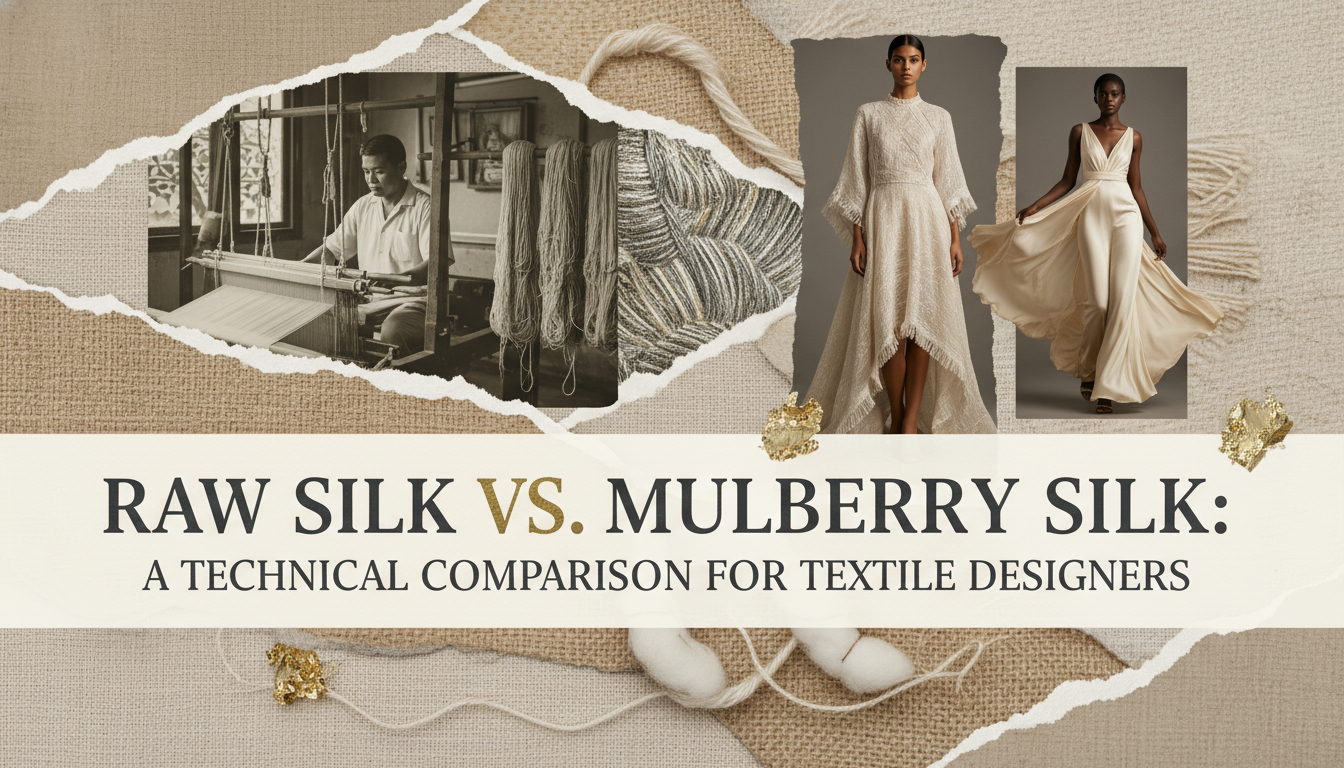
raw silk vs. mulberry silk: a technical comparison for textile designers
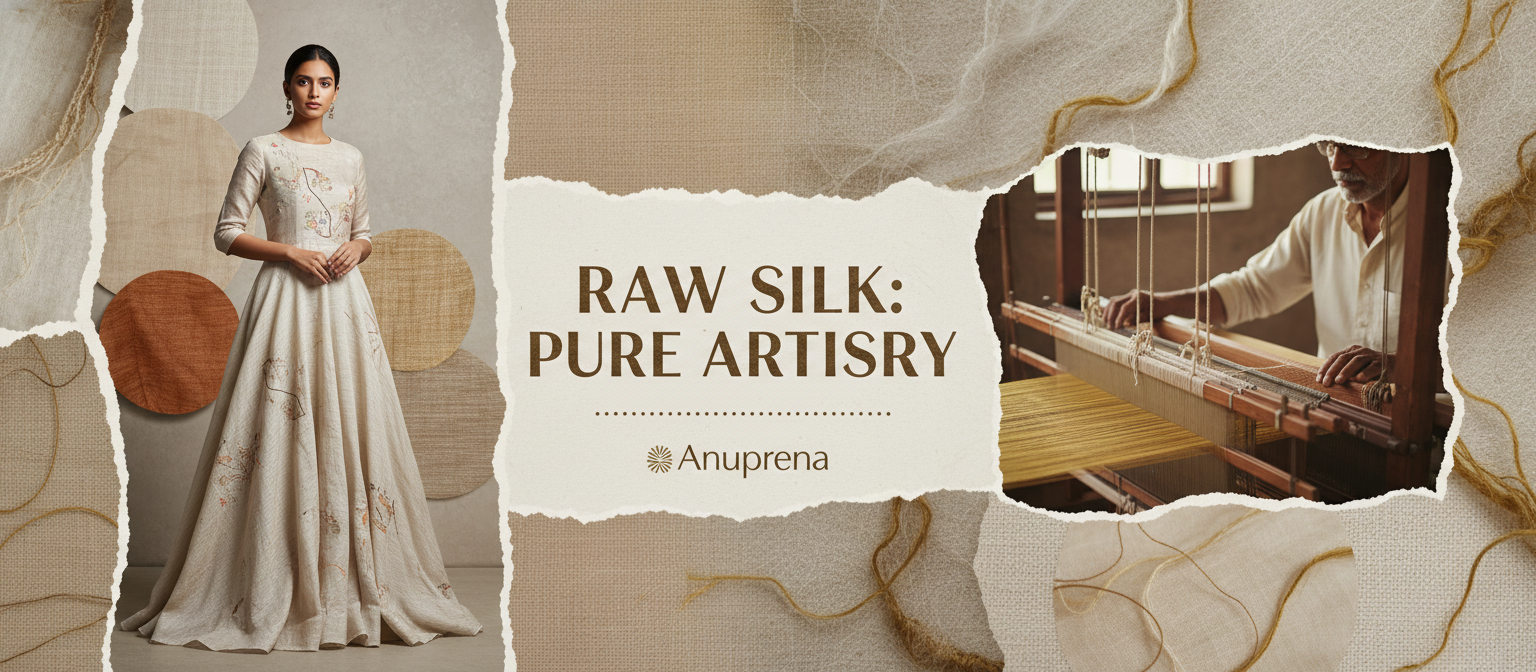
the ultimate sourcing guide to raw silk fabric: properties, weights, and creative uses

handspun khadi vs. mill-made cotton: why khadi online shopping offers more value
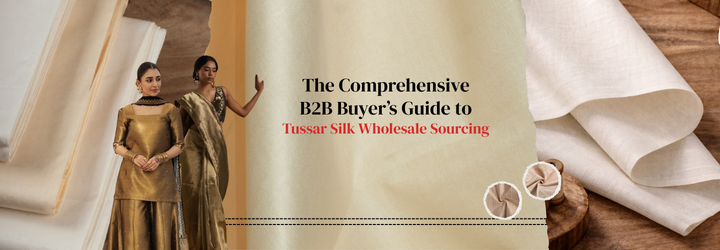
the comprehensive b2b buyer’s guide to tussar silk wholesale sourcing
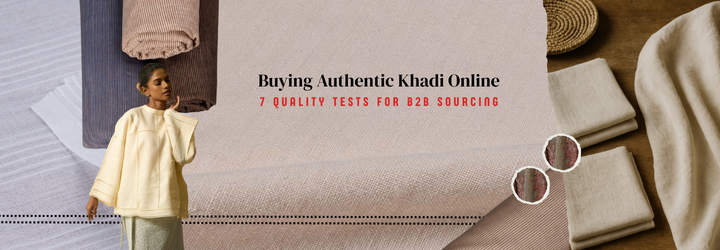
buying authentic khadi online: 7 quality tests for b2b sourcing
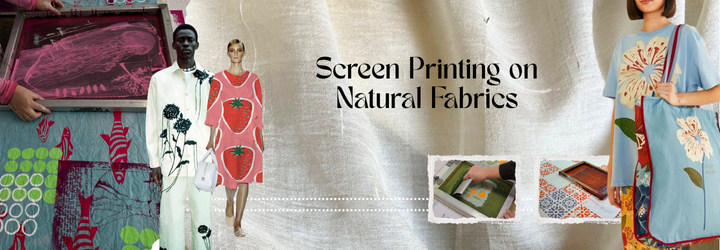
screen printing on natural fabrics: what experience teaches that manuals don’t






